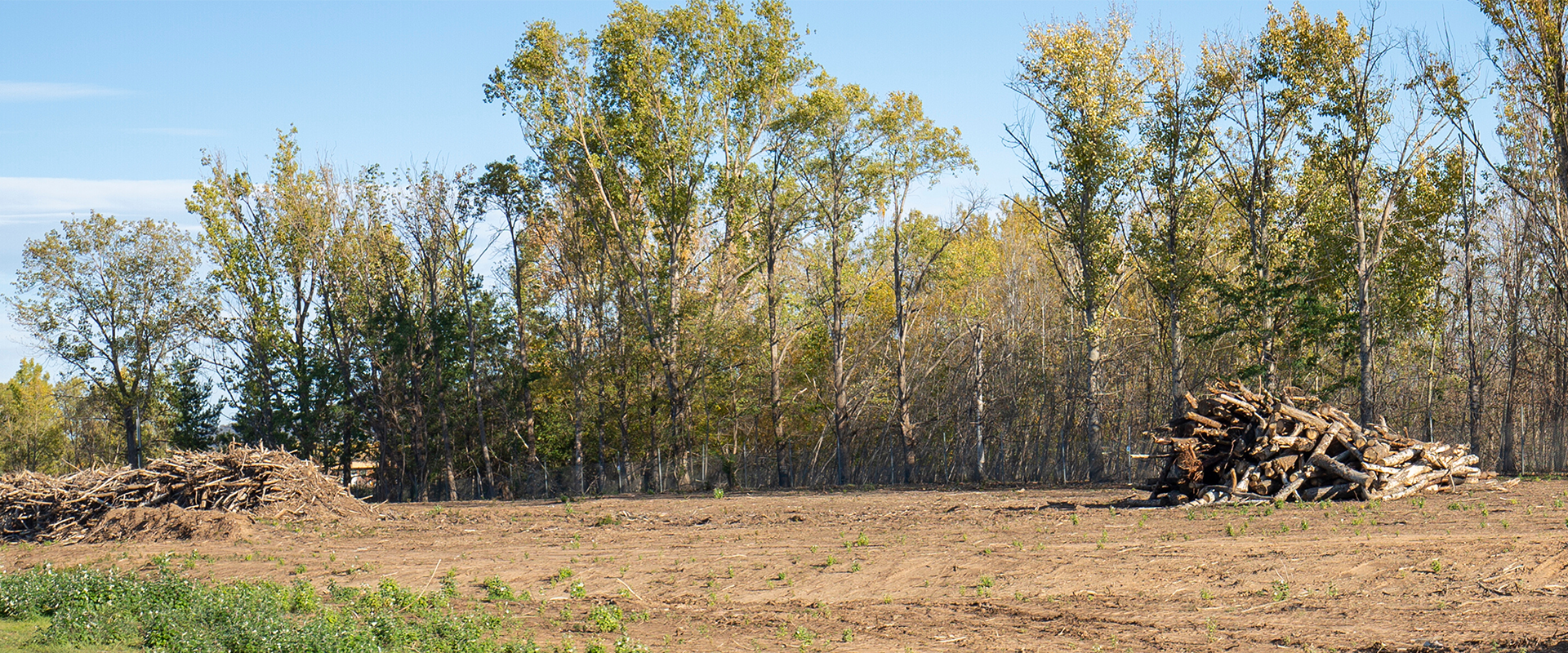Free public lecture will look at pressures on land in the UK

20 August 2025
The fourth in a series of free public lectures to mark the 180th anniversary of the Royal Agricultural University (RAU), will look at the how we can hope to meet all the UK’s policy targets that rely on land without damaging the nation’s food security.
From tree planting to house building, it is estimated that an area more than twice the size of Wales is needed to meet all the UK’s policy targets that rely on land but there is no more land.
So, what is the best mix of ‘land sparing’ and ‘land sharing’ approaches to balancing food production and nature? Even if everyone could agree how best to use land in theory, can government achieve any of this without treading too heavily on farmers’, and landowners’, toes? And is all this actually just a licence to build houses and forest the uplands?
In the lecture Our Future in the Land, which takes place at the RAU on Wednesday 10th September, Professor Tom MacMillan, recently appointed an Honorary Visiting Professor at the RAU, and Sue Pritchard, Chief Executive of the Food, Farming and Countryside Commission (FFCC) and an independent Governor of the RAU, will dig into these questions and many more.
The FFCC’s 2019 report, ‘Our Future in the Land’, recommended a national land use framework for England and the organisation has played a central part in shaping the Government’s approach and ensuring input and scrutiny from farmers, communities, and others it could affect.
Sue Pritchard said: "When we started out on this project, back in 2018, very few people wanted to talk about land and land use decisions. Now spatial plans are popping up everywhere!
“Tom and I will talk about why we all need to care about land use decisions for a more adaptable, resilient and prosperous future, and how we can make sure rural and grassroots voices are not side-lined in national plans."
Professor MacMillan added: “While central government holds some of crucial cards that are needed for England to make the most of its land, it will be the rest of us – farmers, land managers, planners, and communities – who put any of this into practice.
“This lecture will focus on the tools we need to make joined-up decisions about land use. There are already some brilliant examples but also a need and opportunity for innovation.”
The free ‘Our Future in the Land’ lecture will take place in the University’s Boutflour Hall, at its Cirencester campus, from 6pm to 8pm (doors open at 6pm with the lecture starting at 6.30pm) on Wednesday 10th September and is open to all. Please visit https://our-future-in-the-land.eventbrite.co.uk to reserve your free tickets.
Originally established in 1845 as the Royal Agricultural College, the first agricultural college in the English-speaking world and with just 25 students, the Royal Agricultural University gained its university status in 2013.
To celebrate its 180th anniversary, the institution - which now has around 1,100 students at its Cirencester campus as well as more than 3,000 studying worldwide with its many international partners - has a calendar of events taking place throughout the year including this series of free public lectures.
Other events include the unveiling of a new sculpture made especially for the anniversary, the opening of the University’s new £5.8m land laboratories, a Community Open Day – taking place on Saturday 13th September - and a global online party for the University to celebrate with its international partners.
Professor Peter McCaffery, who became Vice-Chancellor of the RAU in 2021, said: “As we celebrate our 180th anniversary this year, we can reflect that our University is as relevant today as it always has been.
“Founded in 1845 to help meet a national emergency – how to feed the country at a time of burgeoning urbanisation and industrialisation – we are immensely proud of the contribution our world-wide family of 17,000+ alumni have made as leaders, entrepreneurs and innovators in agriculture and the land-based sector.
“Today we seek to equip a new generation of graduates to help address the global challenges that face us – climate change, food security, sustainable land use, biodiversity loss and heritage management.
“Building on our historic purpose – to care for the land and all who depend on it – we are now driving new frontiers as the leading specialist university in England for research, ‘top-of-the-class’ in our cluster of STEM universities for knowledge exchange, and sponsor of our £140M Innovation Village project to develop sustainable solutions for food production that will be ‘a first for the UK’.
“The RAU is also an exemplar of best practice in Trans-National Education, as recognised by UKRI and the British Council, and, in just the last three years, we have co-founded two brand-new universities – the International Agricultural University in Tashkent, Uzbekistan, and the University of Al Dhaid in Sharjah, UAE.
“Our influence and impact continue to be felt locally, nationally, and globally, and we fully intend to continue to punch above our weight in the future as we have done for the past 180 years.”
This lecture is generously sponsored by the Elizabeth Creak Charitable Trust, a grant giving body that invests in people who will advance healthy, fair and sustainable UK food production. Grants finance projects that help farmers innovate to survive and thrive while scholarships support and encourage individuals to innovate sustainable practices in farming.
The late Elizabeth Creak, was a widely respected and enterprising dairy farmer who inherited the business established by her uncle Clyde Higgs who was himself a renowned innovator, as well as a BBC commentator on agriculture. Elizabeth bequeathed funds to the Elizabeth Creak Charitable Trust to encourage and support innovation in farming.
For more details of all the RAU’s 180th anniversary events, and to book a place at one of the remaining 180th anniversary free public lectures, please visit https://www.rau.ac.uk/about-rau/why-rau/180-years.